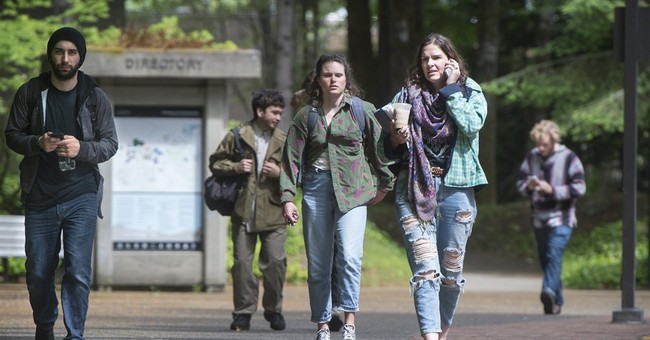For most UM faculty and administrators, anti-Christian bigotry is acceptable. In fact, going along with it is fashionable and wins them points in academic circles. Those who don’t accept it keep it to themselves. They fear becoming outcasts for siding with Christians in the current culture war.Mike Adams

"Since my last column on academic hypocrisy several readers have written to express the view that intolerance toward conservative Christians is the only form of intolerance that academics are willing to tolerate. Such a view seems reasonable at first glance. Upon further reflection it misses the mark. Tolerance presupposes a) a moral judgment against something and b) the choice to permit it. Hence, my readers’ views are overly charitable. In order to elaborate, I ask my readers to imagine the following thought experiment:
"The Dean of Journalism at a large public university refuses to sponsor a speaker as a part of a distinguished lecture series. In an email to the series benefactor, the Dean provides five reasons for the refusal. His words are reprinted below:
1. In his public commentary, the speaker appeared to be siding with the Mexicans in recent immigration controversies.
2. In his public commentary, the speaker appeared to be siding with the blacks in recent police brutality cases.
3. In his public commentary, the speaker appeared to be siding with the Jews in recent conflicts in the Middle East.
4. In his public commentary, the speaker appeared to be siding with the homosexuals in recent religious liberty cases.
5. In his public commentary, the speaker appeared to be siding with Christians in the ‘culture war.’
"If such an email were sent and somehow leaked to the general public, the reaction would be swift and severe. Virtually every member of the university faculty would condemn statements one through four. This would be followed by calls for the Dean’s removal. In other words, the faculty at a public university simply would not tolerate the first four statements.
"But would faculty at a public university tolerate the fifth statement? I may surprise my readers by arguing that such a statement would not be tolerated. Granted, there would be no condemnation of the fifth statement. But the reasons for the silence, which would be twofold, would place them squarely outside the definition of tolerance:
1. The faculty and administration would overwhelmingly approve of the statement. 2. Those who disapproved would remain silent only due to a fear of reprisal
. . . Full article here.
The writer: . . . In addition to lecturing on the First Amendment, Mike Adams is actively involved in legal challenges to campus censorship. Represented by the ADF, he won a landmark First Amendment case before the 4th Circuit in Richmond, VA. Decided in 2011, Adams v UNCW held that professors publishing columns and giving speeches have the full protection of the First Amendment when discussing matters of public concern. Hence, when professors report such activities as part of their annual review, tenure, or promotion materials the university does not have license to discriminate on the basis of the professor's viewpoint. . . .













